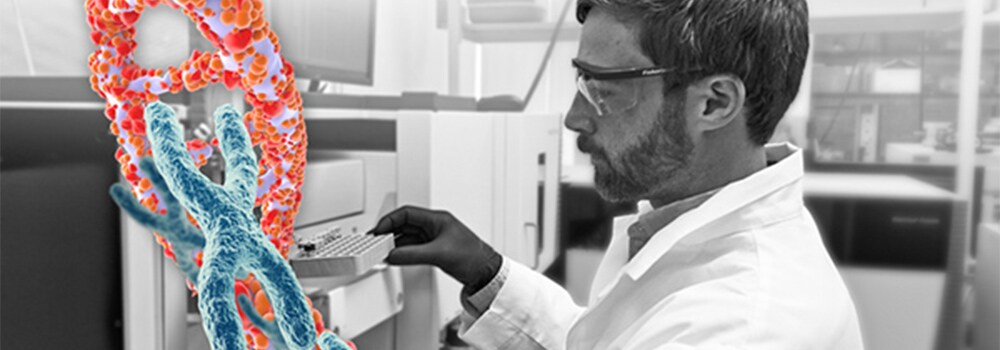
Centrifugation plays a key role in the cell culturing steps involved in cell and gene therapy production. As such, manufacturers need efficient centrifugation workflows that ensure cell viability and deliver optimized yields. At the same time, these processes must assure the production of consistently safe and effective products in accordance with Good Manufacturing Practice (GMP). This blog looks at how advances in centrifugation technologies are helping cell and gene therapy manufacturers achieve the highest levels of reproducibility and quality during cell culturing.
Minimizing Cell Pellet Disruption with Computer-Controlled Centrifuge Acceleration and Deceleration
Mammalian cells are extremely delicate structures, and the soft pellets generated by centrifugation are easily disturbed by forces and vibrations that occur during instrument deceleration. Furthermore, some specialized primary cells, such as mononuclear cells, require chemical gradients for isolation, and the sensitive interfaces between these liquid layers can be easily disrupted during centrifuge deceleration. Minimizing pellet and gradient disruption is, therefore, imperative to maximizing cell harvests.
Despite the importance of controlling centrifuge deceleration forces, these can vary significantly between instruments and manufacturers. Traditional no-brake deceleration approaches are also affected by load, resulting in large differences in deceleration times that can affect yields and reduce production efficiency.
Modern centrifuge systems that feature microprocessor-controlled acceleration and braking, such as those in the Thermo Scientific General Purpose Pro Centrifuge Series, help ensure reproducible deceleration irrespective of load or local environmental conditions. As part of the Thermo Scientific Cell Therapy Systems CTS Series product range, General Purpose Pro Series centrifuges are designed for cell and gene therapy research and development as well as GMP clinical and commercial manufacturing. These versatile systems provide extensive flexibility in fine-tuning parameters, such as g-force, separation time and acceleration-deceleration slope to meet the needs of specific cell and gene therapy products and workflows.
Enhancing Product Consistency Using Temperature-Controlled Centrifuges
Changes in temperature can impact on biological pathways, and affect the quality and consistency of cell and gene therapy products. As a result, temperature control is critical throughout GMP cell processing workflows.
However, maintaining temperature control can be challenging when working with ventilated centrifuges, and becomes increasingly difficult when multiple centrifuges are running in the same room. The temperature within the centrifuge can be affected by local environmental conditions, heat radiated from the hot motor, as well as friction on the rotor surface.
Refrigerated centrifuges are the only way to ensure reproducible temperature control. General Purpose Pro Centrifuge Series systems feature a smart, simple interface that supports scheduled cool-down for rapid and reliable temperature-ready centrifugation. This helps manufacturers achieve the robust temperature control necessary for the GMP production of safe and effective cell and gene therapy products.
Protecting Sample Integrity by Reducing the Risk of Centrifuge Contamination
Cell culture contamination can compromise the safety and integrity of cell and gene therapies, and bring research and manufacturing to a complete stop, harming a multitude of related processes.
Centrifuges are a potential source of contamination in production workflows. A spinning centrifuge can generate a large amount of air movement that will pick up contamination from around and underneath the centrifuge. When the lid is opened, aerosolized contaminants will be released into the laboratory.
One of the best ways to minimize centrifuge-based contamination is by applying good cleaning practices. Centrifuge chambers, rotors, buckets and adapters should be regularly cleaned. It is also important to clean underneath the centrifuge, as dust, hair, mold and other objects can collect.
The risk of sample contamination can be further reduced using biocontainment lids that securely protect samples, centrifuges and operators from hazardous contamination. Thermo Fisher Scientific offers a range of fixed-angle and swinging bucket centrifuge rotors that are compatible with Thermo Scientific ClickSeal Biocontainment Lids. ClickSeal Biocontainment Lids are biocontainment certified and designed for one-hand opening and closure, enabling contamination protection, while maintaining ease of use. What’s more, General Purpose Pro Series centrifuges support auto-lock rotor exchange, which not only provides versatility between different workflows, but also enables quick removal of the rotor, granting easy access to the chamber for efficient cleaning.
Safeguarding quality and consistency in GMP cell and gene therapy production
Watch our on-demand webinar for more information on achieving reproducible results from suspension cell culturing workflows.
This product is intended for General Laboratory Use. It is the customer’s responsibility to ensure that the performance of the product is suitable for customer’s specific use or application.



